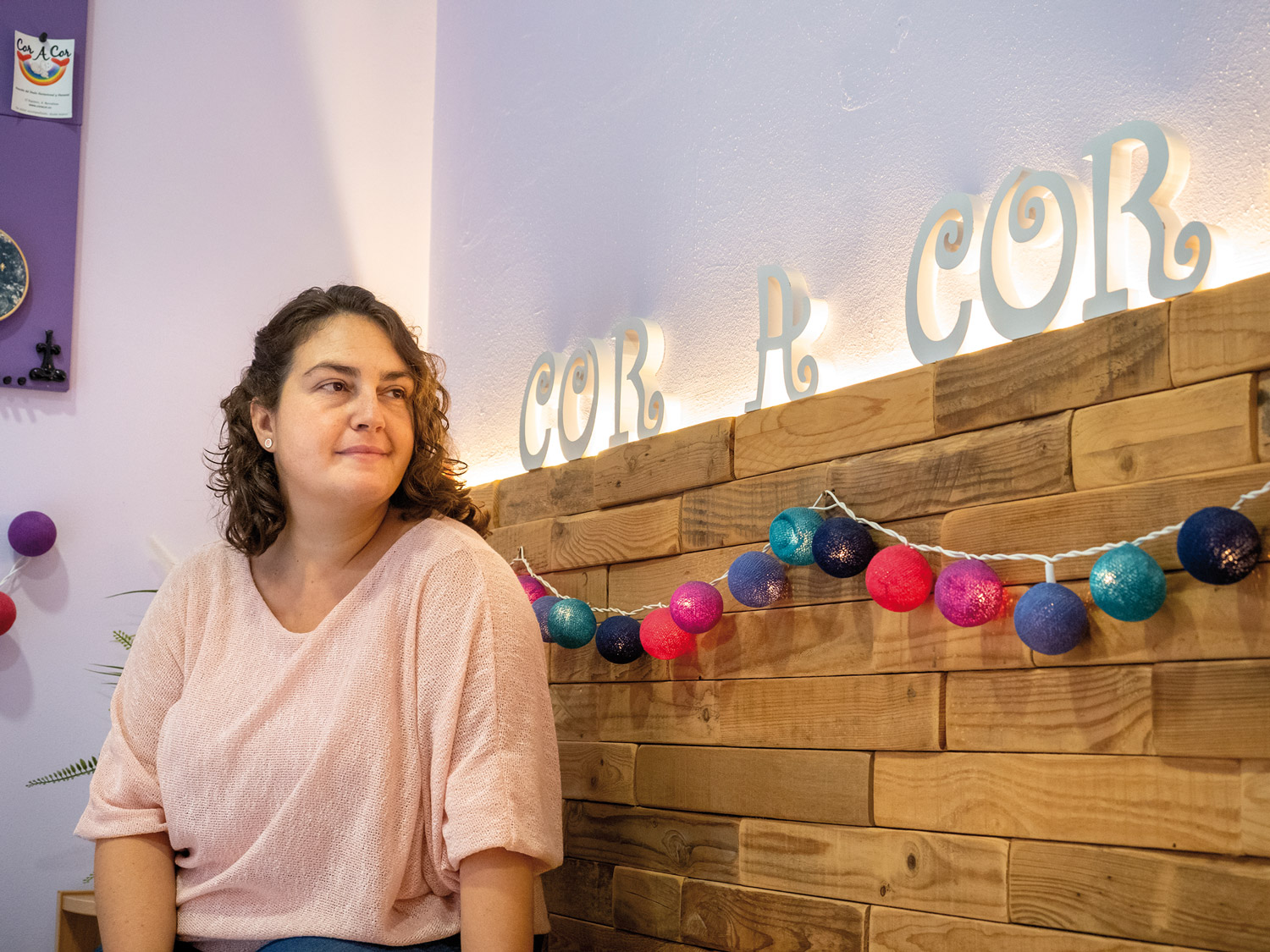
- Noelia Sánchez is a grief therapist in both pregnancy and neonate. After knowing on her skin the shortcomings of the health system to care for families who have suffered the death of their babies, Cor at Cor created a project to help families of children who have lost during pregnancy and the first years of life.

In October, awareness of children who die during pregnancy or newborn is encouraged. Twelve years ago his daughter Cora was born dead. From this experience, your professional career evolved into a new direction and became an assistant to the pregnant women.
Indeed. Looking back, although my objective from the rational point of view was to be adjusted, I think the demand for motherhood assessment weighed. I needed to somehow feel my mother, even if I didn't have babies. I knew little about Doula's role, but when I analyzed the information about training, I saw clearly that that was my place: it was essential to attend grief and special maternities from that understandable and sustainable perspective.
His daughter Cora was born lifeless twelve years ago. What are the social and system deficiencies in baby mourning?
My daughter was born and died in January 2011, and then there were not as many resources as today. At first I felt unprotected, both in my environment and in the healthcare system. I live in Barcelona and was lucky because I had the wonderful help of a family group. They were also in mourning for infant deaths. We met once a week and it was my salvation. On the contrary, at the hospital we received disastrous treatment and were not given resources to manage the suffering.
In recent years, like Cor a Cor, several projects have been developed to cover the shortcomings of the health system. What do you think?
We have worked intensively on improving care for families of children who died in pregnancy and in the newborn, which is making it possible to improve health care. Decent treatment is essential for health organisations and professionals.

However, the death of children remains taboo, right?
Well, the taboo is death itself, and yes, if it's more childish. I believe that in society we reject painful facts, and not only that, but we downplay it in order not to feel pain in unconscious effort. Conversely, breaking the taboo of perinatal death allows families to feel better in pain, judge less and be freer to express love for their deceased children.
What do families suffering the death of a child need?They
must live freely the pain and love that has caused their babies' deaths. They do not care about the opinions, the advice and the words they have not asked for. On the contrary, it will help them to ask what they need.
How should people around a family who have lost a baby
act?Carefully, with great respect and with presence. Listening to the needs of the family that has lost their child is fundamental, without advice, opinions or suggestions. Hugs and protection are the most important, because there are plenty of words. As far as possible, helping in household tasks can help, make purchases, help clean the house... It is about taking into account the pain and love for the deceased child, basically, offer affection, much amor.Adem
to help families, organize training for professionals. What is this training and what can health workers find?
The main goal is for all the professionals who train me to understand how a family affects their child's death. Because I believe that the protocol to be followed by a professional with a baby who has died in pregnancy or in the newborn is not important if it does not provide human sensitivity and support to the family.
That is why it demands attention worthy of professionals, because it is decisive to advance in grief. How do professional training receive?
Most importantly, most of the professionals who have attended my courses have come for professional interest, either for a personal experience or for having known the subject in a nearby environment. As the course progresses, everyone feels a change and it is gratifying to be a spectator of change.
Why is it necessary for gynecologists and midwives to be prepared to help in grieving pregnancy and birth?
It is essential that all health professionals receive up-to-date training because perinatal and neonatal death brings about one in four pregnancies. It should be imperative that all professionals working with families suffering the death of a baby have a minimum knowledge of grief. Only through training will decent care be ensured. Surely we cannot avoid the deaths of children, but, of course, to improve the care we receive these children when closing their eyes there is always a lot to do.
“Amak sortu zuen haur-eskolan koskortu nintzen, 3 urte nituen haren ateak zabaldu zituenean. Nolabait, nire etxea izan zen. Agian horregatik, beti sentitu izan naiz eroso haurtzaroarekin zerikusia duen edozertan lan egiten. Gerora, Gizarte-laneko ikasketak hasi nituen, nire lehen aukera gizarte-hezitzailea izatea zen arren; notagatik ezin izan nuen. Baina, egun gutxi barru argi ikusi nuen egon nahi nuen tokian nengoela. Adingabeen babes-sistemarekin harremanetan jarri nintzen eta pixkanaka-pixkanaka nire etorkizun profesionala diseinatzen hasi nintzen, gurasorik ez zuten haurrekin lanean. Orain, atzera begiratuz gero, bitxia iruditzen zait: gurasorik gabeko haurrekin lanean hasi nintzen eta orain seme-alabarik gabeko gurasoekin lan egiten dut”.